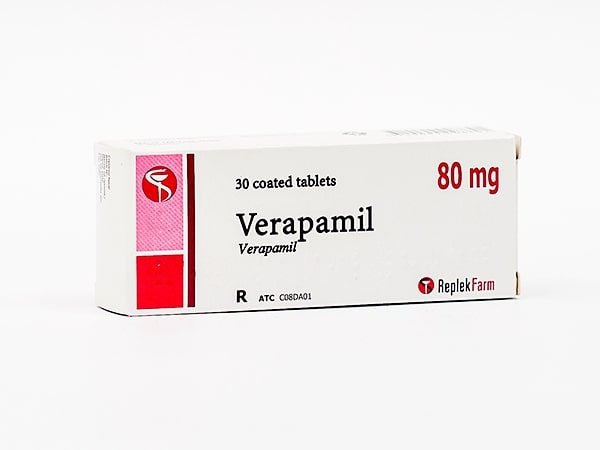Verapamil - Product Description
Overview:
Verapamil is a versatile calcium channel blocker used to manage hypertension, angina, and specific heart rhythm disorders. By inhibiting calcium ion influx into heart and blood vessel cells, Verapamil promotes vasodilation, lowers blood pressure, and reduces the heart's workload. It is available in both immediate-release and extended-release formulations to suit various patient needs.
Indications:
Verapamil is indicated for treating high blood pressure, angina (chronic stable, unstable, and variant), and certain cardiac arrhythmias, such as atrial fibrillation, supraventricular tachycardia, and paroxysmal supraventricular tachycardia. It is also sometimes used off-label for migraine prevention and other conditions where calcium channel blocking is beneficial.
How to Use:
Verapamil should be taken exactly as prescribed by a healthcare provider. It is usually taken orally with or without food, once or twice a day, depending on the formulation and the condition being treated. Patients should not crush or chew extended-release tablets, as this can release the entire dose at once, increasing the risk of side effects. Regular monitoring of blood pressure, heart rate, and liver and kidney function is recommended during treatment.
Advantages:
Verapamil offers a multipurpose approach to cardiovascular care. It effectively manages high blood pressure, reduces chest pain episodes in angina, and controls abnormal heart rhythms, making it a valuable medication in cardiac therapy. Its extended-release options provide long-lasting control with once-daily dosing, improving patient adherence and overall treatment success.
Conclusion:
Verapamil remains a cornerstone in managing various cardiovascular conditions due to its ability to relax blood vessels, improve blood flow, and regulate heart rhythms. Its effectiveness in reducing high blood pressure, controlling angina symptoms, and preventing arrhythmias makes it a preferred choice for many patients and healthcare providers. Ensuring proper dosage and adherence under medical supervision maximizes its benefits and minimizes risks.
Composition:
Verapamil tablets contain verapamil hydrochloride as the active ingredient. Inactive ingredients may include lactose, magnesium stearate, microcrystalline cellulose, and povidone, depending on the formulation.
Note:
Patients should inform their doctor about any other medications they are taking, as Verapamil can interact with other drugs, especially beta-blockers and certain heart medications. Side effects can include dizziness, headache, and constipation. Immediate medical attention is needed if severe side effects such as shortness of breath or swelling occur.






